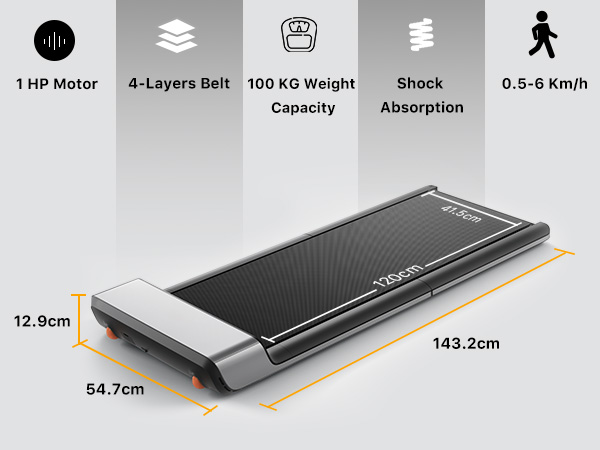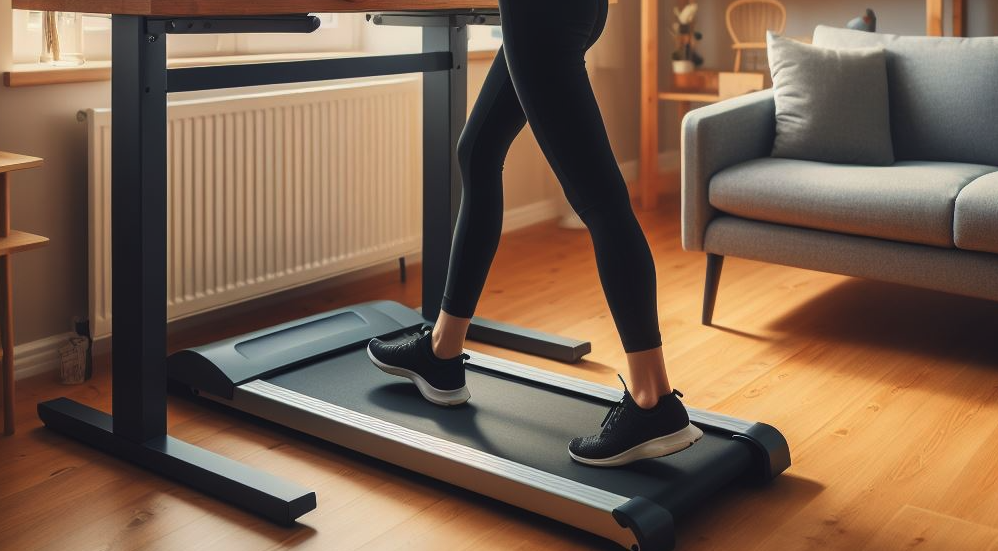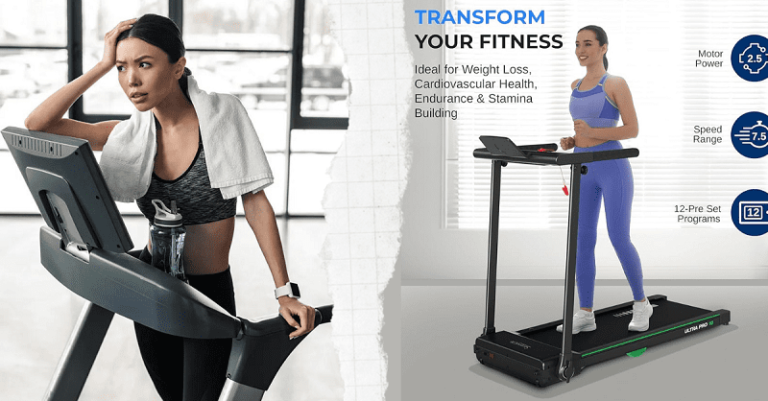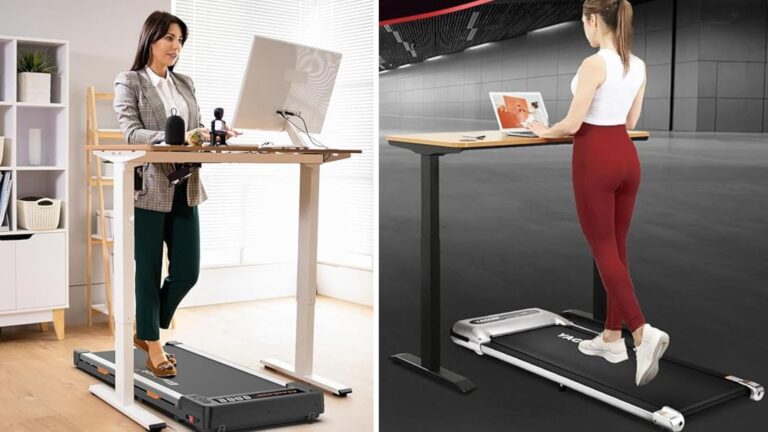What Happens If You Exceed the Weight Limit on a Walking Pad?

Will the walking pad I purchased be able to support my weight? This is a common question that is likely on your mind before investing in one. Walking pads are designed for different weights and body types. Some walking pads can support weights ranging from 200 to 300 pounds, while others can handle up to 400 pounds. However, this depends on how advanced and robust the walking pad is. Learn what might happen if you exceed the walking pad weight limit.
Why You Should Adhere to the Walking Pad’s Weight Limit
Knowing the walking pad’s weight limit is essential so that the machine will meet your goals. Exceeding its capacity can affect its stability and performance. Additionally, you won’t be able to use it effectively daily, and it will soon become damaged. Different models of walking pads are designed for various purposes and body types. Manufacturers set the weight limits, and following these guidelines helps keep the belt, motor, and frame in good condition. If you exceed these limits, the walking pad can become damaged prematurely. Therefore, know the weight limit and use the walking pad accordingly to ensure it serves its intended purpose.
How Exceeding the Weight Limit Can Damage the Walking Pad’s Frame
Walking pad manufacturers design the frame to support a specific weight capacity. If you exceed this limit, the frame may crack or bend over time. A damaged frame will directly affect the walking pad’s performance. When the frame deteriorates, the surface becomes compromised, causing the belt to move improperly. This situation can lead to potential injuries. Additionally, a damaged frame can also harm the motor. To keep the walking pad functioning properly, always stay within the recommended weight limit.

Effects on Motor Efficiency and Belt Longevity When Overloaded
The motor and belt are interconnected when it comes to the performance of a walking pad. They work in sync to provide a smooth walking experience. Exceeding the weight capacity affects both the motor and the belt, reducing their efficiency and longevity. When the motor cannot handle heavy weights, it overheats, which can cause it to burn out prematurely. Similarly, when the belt struggles with more weight than its capacity, it may tear. Regular maintenance can help prolong the belt’s life, but it’s better to avoid overloading the walking pad to prevent early damage.
The Dangers of Using an Overloaded Walking Pad
Putting excessive weight on a walking pad not only damages its integrity but also poses a serious threat to your safety. An overloaded walking pad can become unstable, increasing the risk of slipping, tripping, or falling. The surface of the walking pad may bend, leading to an uneven walking surface and causing you to lose your balance. This will significantly impact your workout and may also lead to injuries.
Learn Warranty Voidance Due to Weight Limit Exceedance
Walking pads usually have repair or replacement warranty for manufacturing faults. But that doesn’t mean going beyond the weight limit because this will cause the warranty to be null and void. Weight restrictions are set by manufacturers after conducting trials to maximize the use and safety of the device. If you fail to adhere to these guidelines and put more weight on the walking pad, manufacturers will consider it as misuse.
They do not honor the warranty for breaking the walking pad by misusing it. You will have to incur repair or replacement costs, which could be expensive. Always read the warranty terms and stick to the recommended weight to prevent additional costs.

Select a Walking Pad That Supports Your Weight
When selecting a walking pad, don’t just choose one based on your budget, ensure it meets your goals as well. Select a model that can support your weight. Review its specifications, read user reviews, and assess its functionality. Compare it with your expectations and the purpose for which you plan to use the walking pad.
You can also gauge its weight capacity by examining its features and construction. Generally, walking pads with higher weight capacities are made from more robust materials, with stronger frames and belts. Always invest in a walking pad that fully meets your needs.
Summarizing
Walking pads are popular because they are lightweight and flexible, allowing you to place them anywhere and walk while working. However, a prominent concern is, how much weight they can support, which many people like you, want to know.
Walking pads can serve various body types and purposes, and they come with manufacturer guidelines for maintaining longevity and ensuring efficient operation. Exceeding the walking pad’s weight capacity can lead to premature wear and tear on the frame, belt, and motor. To avoid having your investment break down quickly and incur additional repair costs, follow the manufacturer’s guidelines.






